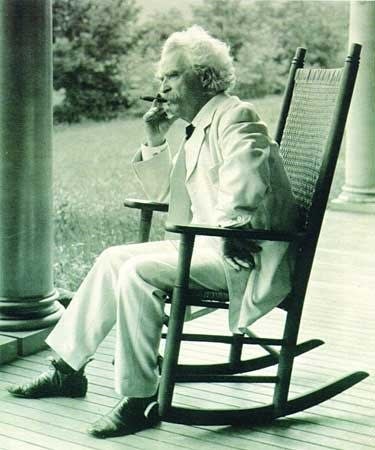Censorship? Or much needed correction?

[image]
A Mark Twain scholar plans to release a new edition of "The Adventures of Huckleberry Finn" without the N word. Today's Question: Should an editor change a classic novel to keep from offending modern readers?
The recent decision to eliminate a certain racist epithet ("nigger") from a new printing of Mark Twain's "The Adventures of Huckleberry Finn" has stoked a heated debate.
According to Publishers' Weekly, Twain scholar Alan Gribben and NewSouth Books plan to release a version of Huckleberry Finn that does away with the "n" word by replacing it with the word "slave."
Create a More Connected Minnesota
MPR News is your trusted resource for the news you need. With your support, MPR News brings accessible, courageous journalism and authentic conversation to everyone - free of paywalls and barriers. Your gift makes a difference.
Gribben was moved to create the new version in response to the classic being banned from many school reading lists, allegedly for its language.
While you can look forward to a story on teh topic from NPR on All Things Considered tonight; it's already the inspiration for a heated debate on our own website, under Today's Question. Here are some excerpts:
"Tim" writes: No. We lose some of the context of the time period when the work was written. the original language may be offensive today but for historical accuracy and insight into the thinking, attitudes and social norms of past eras the works should remain as unchanged as possible.
"MikeK" adds: If the editor changes one word and then releases it that editor should be charged with plagiarism. If Mark Twain were alive today he'd write it the same way. He'd use more of colorful words we have developed over the years since that story was written just to show us how we really act and talk to each other, rub our noses in it.
Not one word of any book should be changed unless the author of the book/work has approved the change(s), ever!
It's just another sign of the "dumb-ing" of America.
Also in the "No" category is "Steve the Cynic": Mark Twain was an adamant abolitionist whose writings (including Huckleberry Finn) did much to expose the evils of racial prejudice. The fact that we consider the N-word intolerably offensive today is in part due to the influence of Twain's writings. Especially if it's assigned reading in HS literature classes, it should be as Twain wrote it, if only so that students will see how far we've come.
Some suggested the book could be published, but it would have to have a different title; most agreed it shouldn't be published at all. But then there are those who say "not so fast" - check out this remark from "Sue de Nim"
There are middle-class white kids who say defiantly, "Mark Twain used that word," as a way of legitimizing their inappropriate use of it, and there are black kids who can't get past the offensive word to hear the powerful story Mark Twain was trying to tell. The ideal solution would be to have excellent teachers of American literature every high school who could guide thoughtful discussions about these issues and help our kids deal with the matter intelligently. Since we don't pay teachers well enough to attract our best and brightest into that profession and fail to give due respect to those who do, we don't have nearly enough of such excellence to go around. If the only other two options are excising the "N" word from Huckleberry Finn or excising Mark Twain from the curriculum, which would you choose?
To which "BruceJ" adds:
What's striking here is the puritanical dogmatism of many who probably consider themselves liberals or progressives. The facts are that many schools avoid assigning the book for fear of controversy and, in some cases, sensitivity or fear of legitimizing use of the N word. As the article linked to by Nick explains, the new edition substitutes the word 'slave' -- hardly an avoidance of discussion of slavery.
Do you really think that the word is the essence of the text? In any case, it would certainly be possible to argue that the meaning of the word in use has changed since the original publication. So a modification that makes the text accessible to more people is akin to a new translation of Tolstoy or Flaubert. Or do you only read those texts in the original language.
And then there are those who are still undecided. Jennifer writes:
My gut reaction to this question was a resounding "NO!" If we don't learn from the past, we're doomed to repeat it. This learning should include understanding why slurs or other language was 'acceptable' at the time. However, in reading the story, I've reconsidered. If an undisputed literary masterpiece is banned from many schools and public libraries because of the use of a single word, as in this case, wouldn't it be better to make an edit, but also explain the reasoning behind it? If Mr. Gribben (or editors to come) include a foreward or notification as to why language was changed, couldn't more teachers teach this work? Couldn't this open the conversation? I hope so.
So what do you think of the idea? Is it more noble to leave the original as it is, and have fewer school students read it? Or do offer a more "palatable" version, and lose the shock of the original writing?